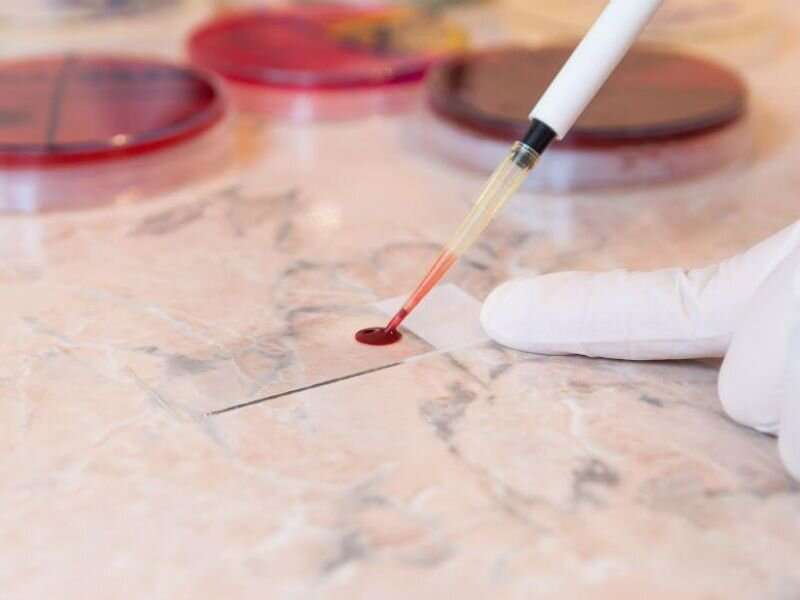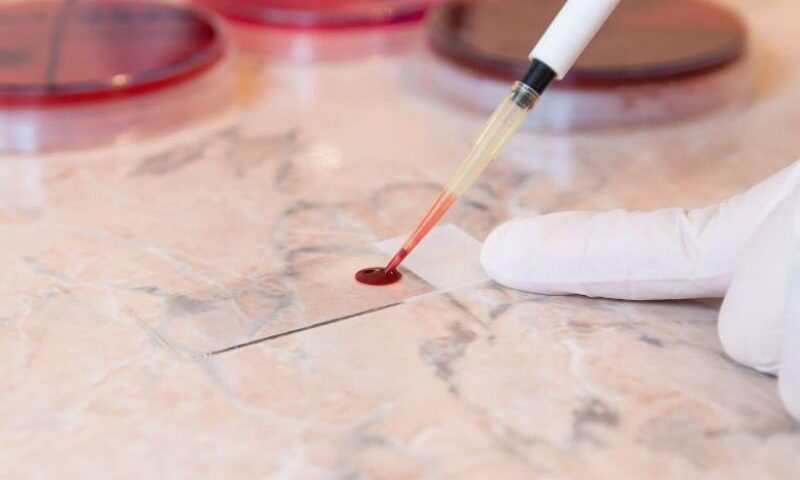
(HealthDay)—A polygenic score derived from pharmacogenomic evaluation of cytarabine (ara-C) pathway can help personalize treatment for pediatric patients with acute myeloid leukemia (AML), according to a study published online Jan. 18 in the Journal of Clinical Oncology.
Abdelrahman H. Elsayed, Ph.D., from the University of Florida in Gainesville, and colleagues analyzed single nucleotide polymorphisms (SNPs) in 166 patients from the multicenter-AML02 trial. The 10-SNP Ara-C_SNP score (ACS10) was developed via multi-SNP predictor modeling using the top SNPs predictive of minimal residual disease and event-free survival (EFS) from the AML02 cohort and four SNPs previously associated with ara-C triphosphate levels in a separate trial. In each clinical trial arm, ACS10 was evaluated for association with outcomes: the standard low-dose ara-C (LDAC, 91 patients) and augmented high-dose ara-C (HDAC, 75 patients) arms of AML02 and the standard Ara-C, daunorubicin, and etoposide (ADE) (465 patients) and the augmented ADE + gemtuzumab ozogamicin (GO; 466 patients) arms of the AAML0531 trial.
The researchers found that EFS and overall survival were significantly worse in the low- versus high-ACS10 group in the standard LDAC-arm of AML02 cohort (hazard ratios, 2.81 and 2.98, respectively). These results were validated in the standard-ADE arm of AAML0531, with worse outcomes observed in the low- versus high-ASC10 groups (hazard ratios, 1.35 and 1.64, respectively). EFS and overall survival did not differ between low- and high-ACS10 score groups within the augmented arms (AML02-HDAC and AAML0531-ADE + GO).
“Our comprehensive approach not only provides a unique ACS10 score of prognostic significance that can predict poor outcome in AML, but suggests that alternative treatment strategies with either high-dose ara-C or addition of GO are more suitable strategies for patients with detrimental low-ACS10 score,” the authors write.
Source: Read Full Article
